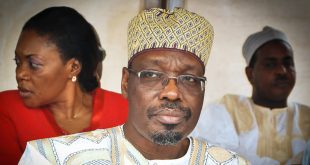CameroonOnline.ORG | In a stunning and unprecedented move, Brenda Biya, the daughter of Cameroonian President Paul Biya, has publicly called on citizens not to vote for her father in the country’s upcoming presidential election. The appeal came through a video she shared on TikTok, a platform where she often posts, but this time her message was political, personal, and bold.
Brenda spoke directly to Cameroonians, urging them to reject her father’s candidacy. She criticized the state of the country under his leadership, pointing to deep-rooted problems such as unemployment, poverty, and stagnation. Her words carried a weight that few could have anticipated, precisely because they came from within the president’s own family.
This act is significant on multiple fronts. It is rare, almost unheard of, for the child of a sitting leader—especially one who has been in power as long as Paul Biya, who has ruled since 1982—to publicly denounce him in such a way. It breaks the expectation of loyalty and silence within political families, suggesting not only personal dissent but also possible cracks within the inner circles of power.
The timing could not be more crucial. Cameroon is heading toward a presidential election scheduled for October 12, 2025. President Paul Biya, now 92 years old, is seeking another term, despite mounting criticism over his authoritarian style of governance and the lack of democratic space. His decades in office have been marked by tight control over political opposition, and discontent has been steadily rising, particularly among younger generations.
Brenda’s video adds a new dimension to this political moment. It is likely to embolden some citizens who have long been frustrated by the system, while also raising uncomfortable questions within the ruling elite. The government’s response remains uncertain. Whether officials attempt to silence her, discredit her, or ignore the message altogether, the fact that such dissent has emerged from the president’s own household cannot easily be brushed aside.
For the people, especially the youth, Brenda’s appeal may resonate strongly. Many face bleak economic prospects and limited opportunities. Hearing someone from the president’s inner circle acknowledge their suffering could galvanize fresh energy for change. At the same time, skepticism exists. Critics may question her sincerity, pointing out her privileged background and life partly abroad, which could distance her from the everyday struggles of ordinary Cameroonians.
Still, this act carries symbolic weight. It challenges the narrative of unity and loyalty around Paul Biya’s long rule. It is also a reminder that even the most entrenched political structures are not immune to dissent from within.
Whether Brenda Biya’s words mark the beginning of a turning point or simply a fleeting moment of rebellion remains to be seen. What is certain is that her video has stirred political waters in Cameroon in a way few others could have, bringing an intensely personal dimension to the larger national debate about leadership, democracy, and the country’s future.
 CameroonOnline.org Cameroon news, Actualité Camerounaise, live Web TV & Radio, World News and a lot more
CameroonOnline.org Cameroon news, Actualité Camerounaise, live Web TV & Radio, World News and a lot more



